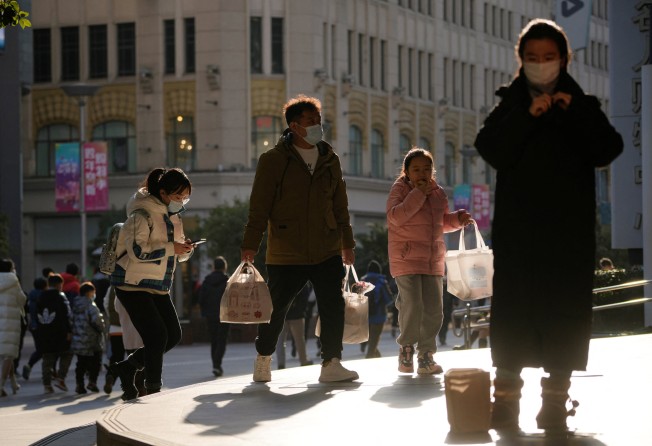
Western media must reflect on year of shameful bias in China, Qatar, Ukraine war coverage
- Western media’s biased reporting has failed to account for increasingly perceptive and critical audience in non-Western world
- Diversity of opinions, self-reflection and shaping public discourse in a responsible manner among ways for Western media to improve standing and stay relevant

A trend that became clear last year is the decline in trust towards Western media, which dominates the global media space.
The largest news conglomerates have morphed into a powerful ally of Western governments, institutions and businesses when covering international affairs, and in the process have betrayed the calling of the independent fourth estate.
Western commentators appear increasingly captive to preserving Western interests and are unable to move beyond entrenched ideological positions to facilitate constructive dialogue with their non-Western audiences. They have become defenders of the indefensible – the fight to maintain hegemony of the West over the global majority. As the latter seek to build a fairer post-Western world order, mainstream media has become a tool used by the West to openly resist these efforts.
As such, 2022 may well be the year we look back on and say: “This was the tipping point when mainstream media finally lost credibility with much of its non-Western readership.”
At best, Western media’s current approach is ignorant and bad for business. At worst, it is divisive, contributing to rising global discord and tensions. It is high time it took its responsibility more seriously.

Biased reporting
There are three clear instances. First is relentless “China bashing”, a move commonly employed in the United States and Europe. It is rare to go one day without reading a headline demonising China. The latest is to criticise the Chinese government for relaxing its Covid-19 restrictions too quickly.
That’s right: the same media monoliths which called for China to abolish its “inhumane” lockdown policies and praised Chinese protesters for their bravery in fighting the authorities are now spinning a new narrative – that China isn’t ready to open just yet.
Second, the reporting on the Qatar World Cup was ripe with thinly veiled colonial thinking, even racism. Many Western media commentators assumed the moral high ground and condemned Qatar for its standard of labour rights, its stand on LGBTQ issues and even called for a boycott before the first game.
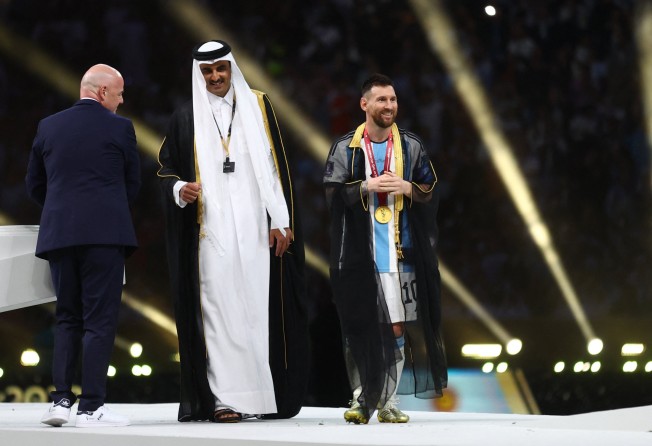
Gone was the focus on unity, positivity and multiculturalism that international sporting events provide. Instead, Qatar’s decisions to uphold its own customs and beliefs were the focus of rampant criticism, while countries like Morocco were mocked for their success at the tournament, with a Danish channel comparing players to monkeys, and the BBC’s Gary Lineker being unhappy that Lionel Messi wore an Arab robe when claiming the World Cup trophy.
The objections to Qatar’s role as host would have been more convincing to a global audience if these same standards were applied to the US and Europe during sporting events.
Hypocritically, they never are. In Western media, Europe is not defined by its human rights transgressions, nor is the US characterised by the conflicts it has orchestrated and been directly involved in across the world, resulting in the deaths of hundreds of thousands.
They will fall silent at the next World Cup, which will be hosted in the US, Canada and Mexico. A global audience will not hear calls for boycotts because of war crimes committed in foreign nations, exploitation of foreign labour, racism against black people and the repression of indigenous peoples.
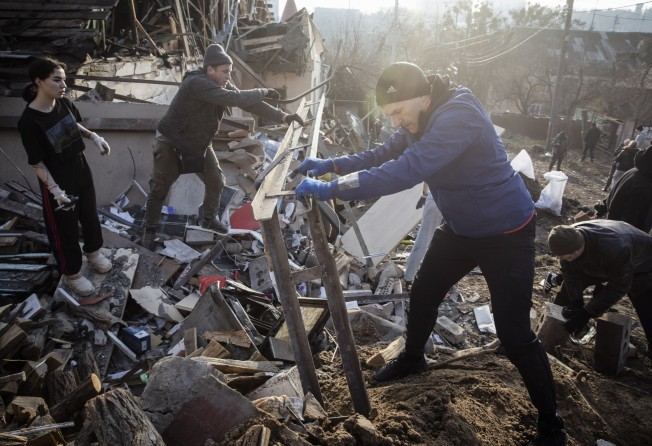
Third, the narratives surrounding the Russia-Ukraine conflict have revealed the Western media’s superiority complex and biased reporting. While Moscow’s actions should be condemned, the Western media has been semi-rabid in its critique of Vladimir Putin, yet semi-blind to the complexities of the triggers behind the war, including examining Nato’s expansionist approach and the Ukraine government’s less-than-savoury actions.
At the onset of the war, racist commentary was abound with comparisons drawn between conflict in “civilised” Ukraine and “uncivilised” countries like Myanmar, Syria, or Yemen (all of which have dropped out of coverage in Western media).
Western media organisations have also adopted a one-sided confrontational approach to solving the crisis to such an extent that the bombing of the Nord Stream gas pipeline has been under-reported and already forgotten, despite being a major act of terrorism potentially perpetrated by a Western power.
These three examples have made it clear that the Western media monolith has failed to account for an increasingly perceptive and critical audience in the non-Western world, and remains tied to the narrative that the West is Best.
If its divisive trajectory continues, Western media will not only lose its following in the non-Western world on foreign affairs and news reporting, it will also stagnate. It refuses to acknowledge that many new non-Western publications with high-quality reporting and analyses are growing, and their traditional reader base now has more options. Western media is even losing trust at home: just 34 per cent of Britons say they trust the news they read, while 38 per cent of Americans have “no trust at all” in the news.
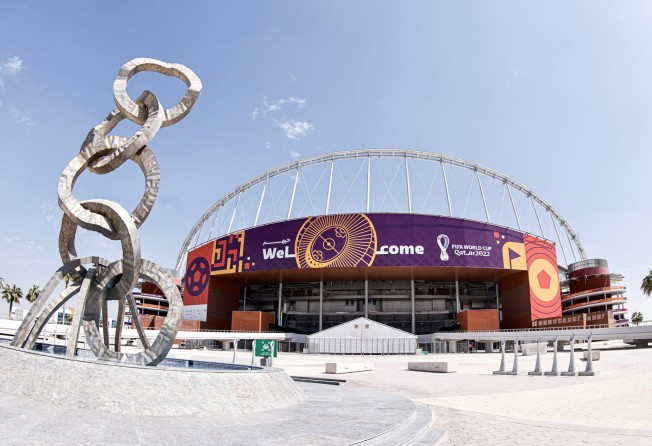
Diversity and taking responsibility
So how can Western media organisations improve their standing? Three suggestions come to mind.
First, they should focus on offering diversity of opinions and thinking. Media establishments in the West rarely allow for opinions that are not aligned with their own, even from experts native to the very regions they pontificate about.
Western media firms should recognise that they are increasingly being constrained by ideological shackles that fly in the face of their proudly proclaimed “free press”. The fourth estate claims to speak truth to power, yet Western media often appears as a mouthpiece for the same dogmas that are used to justify the West’s self-declared position of authority over others.
Diversity of opinions will help create more vibrant, balanced and engaging discussions for readers across the world. If they want to grow and stay relevant, media boards need to stop seeing their average reader as a white person from the West who simply wants to be reassured that the West is superior and will continue to lead the world.
Next, they can be more self-reflective when reporting on others. This is a moral responsibility. By understanding how others perceive the West, commentators will be better able to opine on foreign issues in a way that is relatable to both Western and non-Western audiences. This means relying less on parachute journalism via foreign correspondents, or, worse, rewarding people for being vindictively critical of events and people in non-Western nations.
Critique is essential, but without being constructive it can quickly cause damage. An Asian business or government has no way to correct the harm done by poorly analysed Western commentaries prejudicial to their interests. Any attempt to do so is seen as an attack on the free press, while the Western journalist is transformed into a freedom fighter for the cause of the oppressed.
Lastly, when discussing the global media, there are a very small number of organisations: media consolidation and the decimation of smaller and local media outlets mean that more and more of the press is dominated by a few giant outlets, most of which are Western. Thus, Western media should confront the reality and moral dilemma of balancing the need to inform and to maximise profits without causing harm.
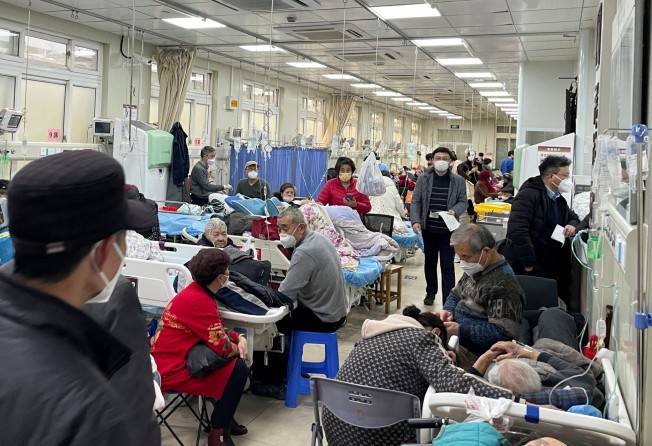
The 24-hour news cycle, along with the drive to be the first to break the news, has led to sensationalist reporting. The media has an obligation to not only pander to the demands of the public but to shape public discourse in a responsible manner.
Western media still has the potential to rebuild legitimacy and credibility with its non-Western audience to maintain a healthy readership, and can forge a better understanding between various regions of the world. It is past due for Western media to shake off condescension and ideological shackles and return to its primary objective as the fourth estate.
Chandran Nair is the founder of the Global Institute for Tomorrow and ExCom member of the Club of Rome. He is also the author of Dismantling Global White Privilege: Equity for a Post-Western World.